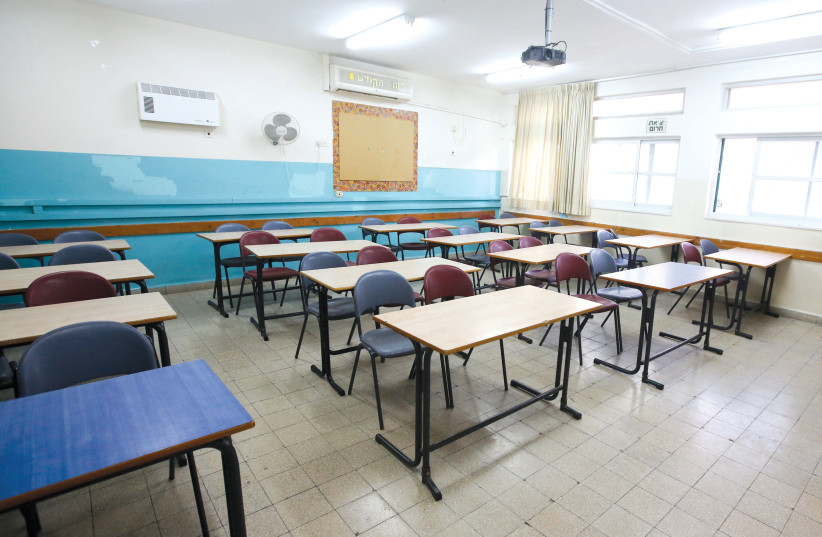Avital Ben-Shelomo, Head of the Education Policy Research Team at the Kohelet Forum, participated in the Jerusalem Post Group’s leaders’ conference, held today at the Tel Aviv Stock Exchange Conference Center, addressing the challenges facing the Israeli education system and the need for fundamental and profound change.
Participating in an education panel, she said that the education system must be extricated from its current position. “Two major failures must be addressed,” she noted. “The low quality of the personnel in the system, and the extreme centralization that characterizes it.
“Raising teachers’ salaries is important, but it’s just the beginning,” she said. “If one wants to bring about a change in the quality of personnel, there are three stages that need to be changed: entry into the system, exit from the system, and the employment conditions within the system, which should incentivize quality and investment.”
“Two major failures must be addressed. The low quality of the personnel in the system, and the extreme centralization that characterizes it. Raising teachers’ salaries is important, but it’s just the beginning. If one wants to bring about a change in the quality of personnel, there are three stages that need to be changed: the entry into the system, the exit from the system, and the employment conditions within the system, which should incentivize quality and investment.”
Avital Ben-Shelomo
Ben-Shelomo pointed out that the gateway to entry are the students learning to become teachers. Potential teachers must come from the elite, rather than becoming teachers by default. “We must prevent a situation where a student, whose admission qualifications are low and has not even taken a psychometric test, will study to become a teacher because they have no other choice. It’s a catastrophic situation.”
The second problem is the removal of inferior teachers from the education system, she said. Following a Freedom of Information request submitted by the Kohelet Forum, it was found that out of some 200,000 teaching staff, only three to five teachers are dismissed each year for pedagogical reasons, while a survey of principals conducted by the forum found that in their opinion, six percent of all teachers in the teaching staff are unfit to teach and should be dismissed. “An exit for bad teachers simply does not exist, and it is impossible to get non-functional teachers to leave the system,” she said.

Centralized education system
Another problem that Ben-Shelomo expanded on is the centralization of the education system. “Seventy percent of the decisions are made by entities far from the field in the Ministry of Education. Even in budgetary matters – and certainly in pedagogical and personnel management – a large part of the powers must be distributed to those in the field.
“The system very much wants to be able to adapt the teaching methods and content to each student individually, according to their needs and circumstances, but in the current situation where the field does not control the agenda, it is impossible to implement it,” she lamented: “and those who are harmed are the students.”
Prof. Dan Ben-David, president and founder of the Shoresh Institution for Socioeconomic Research and professor at Tel Aviv University, said that half the children in Israel receive an extremely low-level education.
“The story is even more serious,” he said. “Half of the children in Israel are receiving a third-world education in basic subjects, and this will only get worse. Israel ranks at the bottom of the developed world on the PISA international exams in mathematics and reading, and this does not include the Haredim, the majority of whom do not study the material at all.”
Translated by Alan Rosenbaum.
